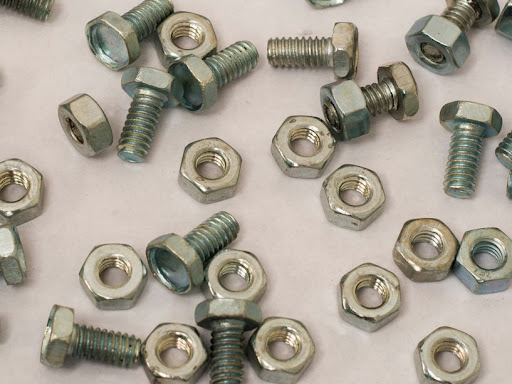Choosing Between Nickel and Zinc For Fastener & Spring Plating
When it comes to fastener plating and spring plating, zinc and nickel sulfamate are the two most common selections. However, they are not equivalent in their properties, costs, or results. Before you opt for either nickel or zinc plating of fasteners, springs, and other small parts, take a few moments to compare their benefits and limitations.
PROS |
CONS |
|
Properties of:Zinc Plating Fasteners |
|
|
Properties of:Nickel Sulfamate Plating Fasteners |
|
|
Zinc plating of fasteners is the preferred method for general-purpose corrosion protection, versatility, and the most cost savings. Nickel sulfamate fastener and spring plating is a more robust option for extremely corrosive environments or applications where heat resistance, total strength, and long-lasting durability under stress are important.
Electrolytic vs. Electroless Nickel For Fasteners & Springs
Zinc vs. nickel is not the only choice to make, however. You have options when it comes to nickel plating, as there are both electrolytic and electroless processes for application of the plate.
Electroplated nickel is deposited in much the same way as a zinc plate, through an electrical reaction that draws free nickel molecules to the surface of your fasteners or springs in a liquid bath. “Electroless” nickel accomplishes this without electricity, through a purely chemical reaction.
While electroplating can be faster and create a thicker coating, it’s less uniform and prone to a certain level of “dog-boning.” This is where the resulting plate is thicker around the edge and convex corners and thinner around the concave corners. Electroless nickel provides an unparalleled and consistent finish without dog-boning — a truly uniform plate thickness that is important in close-tolerance applications. Consider carefully whether this will matter to your springs or fasteners before deciding.
Fast Quotes From a Metal Finishing Expert
In the market for zinc spring plating services? Do you need nickel fastener plating for commercial or industrial hardware? Contact Metal Finishing Technologies today for any of the types of plating discussed above from a team that prioritizes fast turnarounds and superior service.
MFT’s team of experts can offer you personalized guidance on the considerations that should weigh on your choice of zinc, electroless nickel, nickel sulfamate, or another plating for springs and fasteners. Our team has decades of experience and a customer-centered mission. Just share the details of your project and request a quote!

